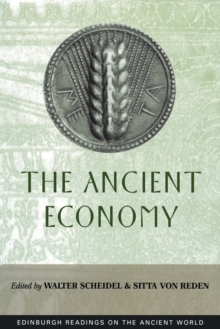
Greeks and Barbarians Hardback
by Thomas Harrison
Part of the Edinburgh Readings on the Ancient World series
Hardback
Description
How did the Greeks view foreign peoples? This book considers what the Greeks thought of foreigners and their religions, cultures and politics, and what these beliefs and opinions reveal about the Greeks.
The Greeks were occasionally intrigued by the customs and religions of the many different peoples with whom they came into contact; more often they were disdainful or dismissive, tending to regard non-Greeks as at best inferior, and at worst as candidates for conquest and enslavement.
Facing up to this less attractive aspect of the classical tradition is vital, Thomas Harrison argues, to seeing both what the ancient world was really like and the full nature of its legacy in the modern.
In this book he brings together outstanding European and American scholarship to show the difference and complexity of Greek representations of foreign peoples -- or barbarians, as the Greeks called them -- and how these representations changed over time.
The book looks first at the main sources: the Histories of Herodotus, Greek tragedy, and Athenian art.
Part II examines how the Greeks distinguished themselves from barbarians through myth, language and religion. Part III considers Greek representations of two different barbarian peoples -- the allegedly decadent and effeminate Persians, and the Egyptians, proverbial for their religious wisdom.
In part IV three chapters trace the development of the Greek--barbarian antithesis in later history: in nineteenth-century scholarship, in Byzantine and modern Greece, and in western intellectual history.
Of the twelve chapters six are published in English for the first time.
The editor has provided an extensive general introduction, as well as introductions to the parts.
The book contains two maps, a guide to further reading and an intellectual chronology.
All passages of ancient languages are translated, and difficult terms are explained.
Information
-
Out of stock
- Format:Hardback
- Pages:288 pages, 2 maps, further reading
- Publisher:Edinburgh University Press
- Publication Date:25/10/2001
- Category:
- ISBN:9780748612703
Other Formats
- Paperback / softback from £27.15
Information
-
Out of stock
- Format:Hardback
- Pages:288 pages, 2 maps, further reading
- Publisher:Edinburgh University Press
- Publication Date:25/10/2001
- Category:
- ISBN:9780748612703










